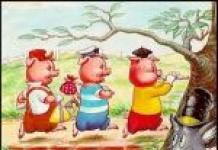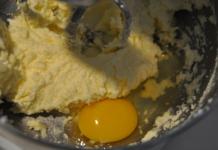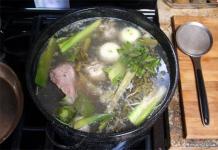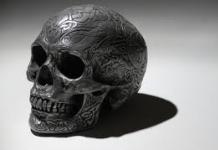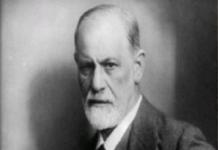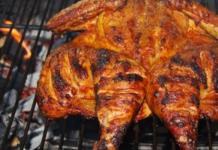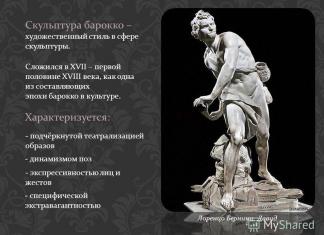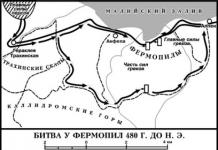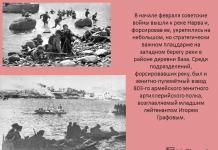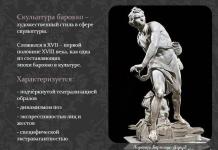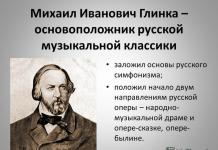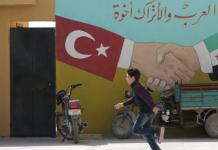Oliver Cromwell is one of the most famous figures of the British state. He became famous for his military achievements and reforms.
Biography: Cromwell Oliver. Briefly: life before the war
Born in 1599 in Huntingdon County. The family of landowners was not rich by the standards of the English elite of that time. Oliver's ancestry can be traced back to the time of his reign. It was during this period that the family was able to make a fortune by confiscating the lands of the church, and, presumably, receive a high title. One generation of Cromwells was close to the king, and even served as Henry’s advisor for 8 years.
In the center of the county - the city of the same name - Huntingdon - Oliver received his primary education. The family strictly adhered to the Puritan "spirit". Therefore, Cromwell continued his further studies at Sidney Sussex College, which was known for its Protestant traditions and Calvinism, which are so inherent in Puritanism. Oliver did not like studying law, and he soon dropped out of school. At the insistence of his relatives, he married the daughter of a small landowner.
Beginning of the Civil War
At the beginning of the 17th century, dissatisfaction with the central government was growing in Britain. King Charles I was unable to carry out the necessary reforms. The monarch, relying on significantly reduced the influence of parliament. This helped him restore the old system of taxation and government of the country. Such transformations caused indignation among the people, which served as the reason for the uprising.
Supporters of Puritanism were represented in parliament by several parties, most of which were moderate supporters of the preservation of church power. But some of the Puritans created the Roundheads party, a radical Protestant organization whose goal was to overthrow the monarch through revolution. It was led by Oliver Cromwell.

Ironside Cavalry
The beginning of the civil war can be considered the king's unsuccessful attempt to arrest five parliamentarians. After this, both sides began to gather troops. The royal army had powerful cavalry, which gave it a huge advantage. The parliament's army consisted of militia units that took up arms for the first time. It was then that Cromwell decided to create a detachment of cavalry that was capable of repelling the royal cavalry.

Oliver himself was not a military man and had no training, but his years as a landowner had given him an understanding of horses. At the beginning of the war, he became captain of a cavalry detachment of fifty people. He taught them to attack in formation and attack from the flank. During the battle, Cromwell's cavalry stood side by side and charged in unity, while the royal cavalry, made up of upper-class men, charged in disarray. The innovations very quickly yielded results, and Oliver Cromwell became the commander of the famous Ironside Cavalry detachment.
The combat unit consisted of about 2 thousand fighters. All of them were tested and strictly selected. Each soldier was a zealous Protestant and a supporter of Puritanism. Oliver Cromwell categorically prohibited drinking and gambling in the camp of the detachment entrusted to him. Exemplary behavior and strict discipline had a serious propaganda influence. The local population admired the non-drinking fighters and en masse joined the army of parliamentarians. In the camps, the dependence of hierarchy on origin was leveled out. Therefore, the detachment was extremely united and friendly. For their courage and steadfastness on the battlefield, Cromwell’s cavalry received the name “Ironsides.”

Mastery of the North
By mid-summer 1644, parliamentary troops were already besieging York, the main stronghold of royal (royalist) power in the North. Both sides understood the extreme strategic importance of the city, so they allocated their best forces to this area. King Charles sent his nephew Rupert to help the besieged, fearing the surrender of the city garrison. The sudden reinforcement forced the army of parliamentarians to retreat. Encouraged by this success, Prince Rupert united with the rest of the royal army and marched to Marson Moor, with the goal of defeating the army of the Roundheads.

On July 2, the parties lined up in battle formations, awaiting battle. The famous “cavaliers”, numbering 6 thousand, were opposed by a detachment of cavalry, led by Oliver Cromwell. The commander left a small platoon of Irish horsemen in reserve for a critical situation. The royalists approached Marson Moor with 17,000 troops. There were 10 thousand more parliamentarians. But the outcome of the battle largely depended on the actions of the cavalry. Cromwell was positioned on the right flank. He ordered his men not to scatter after the attack, but to act as one. Against Rupert's cavalry, he deployed spearmen with long spears, which hit the horsemen before a direct collision.
Battle of Marson Moor
At 5 pm artillery preparation had already begun. After 2 hours, the trumpets began to play, and Cromwell’s detachment rushed to the attack. At full speed the armies clashed in a fierce battle. From the very first minutes, the royalists began to push back their opponents. The qualitative superiority of the fighters had an effect. All of Rupert's horsemen were trained in the basics of military craft from childhood. Oliver Cromwell was wounded in the battle and retired to be bandaged. At this moment, he gave the order to the reserve detachment to strike the “cavaliers” on the flank. The maneuver bore fruit, the enemy wavered. And here Oliver’s bet on attacking in a tight formation came into play. Scattered over a large area, Rupert's horsemen were unable to unite to organize resistance, while the forces of the Parliamentarians had already reorganized and launched a new attack as a single unit.
Results of the battle
Thanks to the successful actions of Cromwell's cavalry, by nightfall the royalists were completely defeated. 4 thousand soldiers were left lying on the battlefield, more than a thousand were captured. The army of parliamentarians lost only 300 soldiers.
The defeat of the royal troops at Marson Moor was the first significant victory for the rebels. The capture of York allowed the Parliamentarians to control the entire North. Cromwell's cavalry demonstrated in practice the superiority of the new tactics of attacking in formation. An enraged Prince Rupert said that Oliver Cromwell “must be iron-sided if he could defeat us” (there is no official confirmation of the statement).
Oliver Cromwell: Lieutenant General of the Parliamentary Army
Cromwell's demonstrated skill as a commander made him commander-in-chief of all the fighting forces of Parliament. He immediately began forming an army of a new model, following the example of his “iron-sided” horsemen. In absolutist England, officer ranks were received depending on their hierarchy in society. In the new army this rule was abolished. Leadership positions were occupied by people who had demonstrated their skills in practice. This contributed to the cohesion and unity of the soldiers. Also, such transformations were approved by the people. Peasants and small landowners began to join parliamentarians en masse.

New model army
Three irregular armies, which acted separately and were directly subordinate only to the field commanders, were transformed into one, numbering 22 thousand people. Strict rules of discipline were introduced, for violation of which various punishments were imposed. The morale of the soldiers was supported by the clergy. Some of them were present directly on the battlefields, dressed in Cromwell attached special importance to the religious training of fighters in the spirit of Puritanism.
The day before, representatives of the eastern lands, which provided for the needs of the army, declared their inability to continue support. The reorganization of the army made it possible to reduce financial expenses. The new army of parliamentarians received its baptism of fire in the battle of Nesby, having won a landslide victory over the “cavaliers”.
Cromwell's reign
After the final victory over the royalists, the parliamentarians were able to establish their power. The country was led by Oliver Cromwell. The Lord Protector (Cromwell's title) established an authoritarian dictatorship and an "iron" order. He relied on the support of his military comrades, who took key leadership positions after the end of the war. These people were loyal to Cromwell and unconditionally carried out all his orders. By refusing to accept the title of king, Cromwell actually confirmed the republican status of England.
The taxation system was revised. All main roads (especially freight routes) were completely controlled by the army. At this time, uprisings began in Scotland and Ireland. Cromwell personally led an army to suppress them. After restoring order, he restored the power of parliament and all supporters of the king were persecuted and repressed. The lords who supported the royalists in the civil war were confiscated from property necessary for reforms. Such actions were positively received by Calvinists and the common people.
Death and trace in history
Oliver Cromwell died on September 13, 1658. The cause was presumably poisoning (some historians believe that the Lord Protector died of malaria). Iron Oliver's funeral was gorgeous. But after them, turmoil began in the country. A wave of unrest and chaos swept across England. Parliament was forced to invite the son of the executed king to the throne. After the coronation, Charles ordered Cromwell's body to be taken out, hanged, and then cut into 4 parts. From then on, peasants were forbidden to even pronounce the name "Oliver Cromwell." The lord's biography was censored for a long time.
Cromwell went down in history as a reformer. During his reign, he enjoyed enormous popularity among the common people. His policies are a shining example of Calvinism and democracy. The reforms carried out by the Lord Protector were the first step towards the overthrow of feudalism. In the 20th century, a funeral mask was found in which Oliver Cromwell was buried. Photos of the find are presented below. He was finally buried only in 1960 in the chapel of one of the Cambridge colleges.

If we approach the issue from a historical point of view, the years of the republic and protectorate did not affect the future fate of England, despite all the reforms that Oliver Cromwell introduced. A short biography of the outstanding Englishman is nevertheless included in the mandatory curriculum of all historical universities in Britain.
Cromwell was born on April 25, 1599 in Huntingdon (the center of the county of the same name) into a family of typical English nobles - Robert Cromwell and Elizabeth Steward. Huntingdon was then a provincial town with a population of 1000-1200 people, whose monotonous life was enlivened only by events in the market square and large week-long fairs. The Cromwell family had been entrenched as representatives of the local elite since the Reformation and the subsequent closure of the monasteries and confiscation of their property to the crown. Oliver's great-grandfather, Richard Williams, preferred the family name to the surname of his uncle Thomas Cromwell, a powerful temporary worker under King Henry VIII, nicknamed "the hammer of the monks."
Oliver's father, Robert Cromwell, was the youngest son in Sir Henry's family and, as the law prescribed, inherited only a small share of his father's estates.
This consciousness, which hurt his pride during his childhood, was especially aggravated when he compared the luxury that reigned in the palace of his uncle in Hinchinbrook, and the life of his home, in which, in addition to himself, six of his sisters grew up. Was it not this consciousness that explained, on the one hand, the “sharpness” and “hot temper” of his nature, which were rumored, and on the other hand, a certain hostility towards the arrogant nobility, which manifested itself in cases of obvious injustice and arbitrariness committed by them in relation to the weak and defenseless.
Overall, little is known about Oliver's childhood and teenage years. Only later did they remember that in Cromwell’s parental home an atmosphere of Puritan piety reigned, with its ethical ideal of “temperance”, “worldly calling”, i.e. business practicality, the conviction that “every action is in the sight of God”, and an attitude to business like a prayer. Oliver's mother, Elizabeth Steward, set the tone in the family.
In 1616, Cromwell became a student at the most puritanical of Cambridge colleges, Sidney Sussex College, where he studied for only a year. Of the subjects taught there, he was most attracted to mathematics and history. However, according to surviving evidence, he did not sit very diligently at his books, but with immeasurably greater enthusiasm was engaged in horse riding, swimming, hunting, archery and fencing.
The news of his father's death in the summer of 1617 forced Oliver to leave the university and return home to help his mother run the household, because he was the only man in a family of seven women.
From the university, Cromwell took away a lifelong admiration for secular sciences and, in particular, a special interest in history. This time he lived in his home for two years, showing himself, to the surprise of his neighbors, to be a very zealous and capable rural owner.
In 1619 Oliver went to London to study law. And there was nothing surprising in this step: the rural squire, with his economic affairs and public responsibilities as a potential justice of the peace or member of parliament from his native county, needed knowledge of at least the basics of the so-called common law. However, in which legal court he studied and how he mastered this science remained forever a mystery. What is known is that 20-year-old Oliver in August 1620 married the eldest daughter of a wealthy London fur trader, Elizabeth Burshire, and soon returned with her to his native Huntingdon. Thus began 20 years in Cromwell’s life, during which the worries of a rural squire and the father of a large family (within 11 years his wife Elizabeth bore him seven children, six of them - 4 sons and 2 daughters - survived) almost completely absorbed the seething and searching release of Cromwell's energy.
The beginning of Oliver Cromwell's political career.
Over the next 20 years, Cromwell led the ordinary life of a rural nobleman and landowner, albeit filled with intense spiritual quest; in addition, he took an active part in local political life.
In 1628, Cromwell was elected Member of Parliament for Huntingdon, the same parliament that passed the famous "petition of right" and was soon dissolved by Charles I.
It is also noteworthy that Cromwell’s first recorded speech as a member of Parliament was devoted to the defense of the Puritan views of his teacher Thomas Beard, who was persecuted by the prelates of the Anglican Church for denouncing a papist who had taken refuge at court. And one more characteristic detail: when on March 2, 1629, the king ordered the interruption of parliamentary sessions, Oliver Cromwell was among those who disobeyed the royal will.
From 1630 to 1636 was the most difficult period in Cromwell's life. After being defeated by the Huntingdon oligarchy, Oliver makes a difficult decision. In May 1630, he sold everything he owned in his hometown and moved with his family to St. Ives, in neighboring Cambridgeshire, where he found himself in a clearly degraded position: instead of the previous status of a freeholder, he had to be content with only the position of a tenant of someone else's land. At the same time, financial difficulties also had an acute impact (rumor explains them by the extravagances of his youth). According to rumors, at this time Cromwell was seriously thinking about emigrating to the North American colony of New England, which was a refuge for many true Puritans who were persecuted in their homeland or simply did not accept the prevailing order in the country. In addition to everything, he found himself in conflict with the royal will; this time - for refusal to acquire, for payment of course, a knighthood, which entailed a fine of 10 pounds sterling. Obviously, it was not about the monetary side of this demand, but about the principle. Cromwell well remembered the school of parliament in 1628-1629 - to resist with all his might the crown's attempts to replenish the treasury bypassing parliament.
A period of severe spiritual crisis began for Cromwell. At night he is tormented by premonitions of hellish torment, in a cold sweat he jumps out of bed, screams, falls... The consciousness of his sinfulness scorches Cromwell from the inside and changes his behavior. He becomes more serious, more focused. His house gradually becomes a haven for persecuted Puritans. In the garden, in a large barn, he sets up a prayer room - there they gather, preach, argue, sing psalms. At the age of thirty-three, Cromwell completes the process of conversion outlined by Calvin. Merciless self-judgment, grief and torment from his own sinfulness, repentance, hope and, finally, confidence in salvation lead Cromwell to the realization of his holiness, his chosenness by God for great deeds. He now understands the meaning of his life as serving justice.
The beginning of the civil war.
During the period of non-parliamentary rule, Charles I made many enemies for himself, imposing exorbitant taxes on all layers of society. Using royal prerogatives left over from the Middle Ages, he demanded payment of the “ship tax” (1635), fined nobles (including Cromwell) if they refused to accept the title of knight, and collected the so-called. "voluntary offerings" and increased taxes. Charles did all this because without the consent of parliament he did not have the right to impose new taxes on the population. His further goal was to ensure the financial independence of royal power and introduce “church uniformity” throughout the country. The latter alienated both the Puritan reformers and many of the nobles and townspeople from Charles. In 1638, Charles waged war against his Scottish subjects (by right of succession he was king of both England and Scotland), failing in his attempt to impose on them a prayer book similar to that used in the Church of England. The Scots Presbyterians, seeing this as a threat to their religion, rebelled, and the king was forced to convene parliament to ask him for money for the war.
Parliament met in the spring of 1640, Cromwell was again elected to the House of Commons (from Cambridge). A large number of claims against the king, accumulated over 11 years of unparliamentary rule, set the leaders of the House of Commons in an aggressive and intractable mood. Cromwell immediately established himself as a militant Puritan, consistently supporting critics of the established church and government.
This so-called “Short Parliament” (April 13 - May 5, 1640) was soon dissolved, but in the summer of 1640 the Scots again defeated Charles and, most humiliating of all, occupied the northern regions of England.
From that time on, Cromwell, who was already 40 years old and had no military experience, moved to the forefront - both as a military organizer and as a leader of the Puritan movement. He became famous for his radical Puritan views in the Long Parliament, advocating the complete abolition of the episcopate, and throughout eastern England he was known as a fighter for the right of church communities to choose both their priests and those forms of religious life that suit the given community.
Cromwell the commander.
With the outbreak of the civil war between Parliament and the king, Cromwell entered the Parliamentary army with the rank of captain and began to assemble a detachment of cavalry among his fellow countrymen in Huntingdon and Cambridge. In September 1642, he already had 60 volunteers in his detachment. This detachment takes part in the first battles, and Cromwell sees that to defeat the king, a completely different army is needed, capable, united, inspired by a high ideal. He recruits into his squad honest Puritans who hate royal tyranny and are ready to lay down their heads for a just cause. Oliver himself teaches recruits to quickly load a musket, hold a pike correctly, rearrange ranks, and obey commands. He teaches them unconditional obedience to the commander's word and mercilessness in battle. By January 1643, Parliament granted Cromwell the rank of colonel. He divides his regiment into detachments and at the head of each he puts a commander - a cab driver, a shoemaker, a boilermaker, a ship skipper. This was unheard of for those times: people from the upper classes were always appointed commanders. But Cromwell is adamant. By March 1643, the regiment already numbered about two thousand horsemen.
The most terrifying impression on the royalists was that Cromwell’s soldiers sang psalms before the start of the battle in full combat readiness. At the beginning of 1644, Cromwell received the rank of lieutenant general.
But Cromwell’s victories do not seem to please the army command, which is prolonging the war and is afraid of decisive action. And parliament is infected with cowardice and indifference, Cromwell convinces, insists, demands a decisive battle. He is confident in the rightness of his cause. At the end of November, he travels to London and speaks in parliament, where he openly accuses the commander-in-chief of the army, the Earl of Manchester, of cowardice and treason. It requires a reorganization of the army and a change of command. And he ensures that the House of Commons passes the “Self-Denial Act”, members of parliament are prohibited from holding senior army positions. This means that all those who prolong the war will automatically lose their posts in the army. Everyone except Cromwell himself. For him, given his military merits, parliament makes an exception. And he decides to create a regular parliamentary army - a new model Army.
On June 14, 1645, this army under the command of Cromwell inflicted the last crushing defeat on the king's troops. Cromwell wrote in a report to the speaker of the lower house: “Sir, after three hours of stubborn fighting, which went on with varying success, we scattered the enemy, killed and captured about five thousand, including many officers. Two hundred wagons were also captured, that is, the entire convoy , and all the artillery. We pursued the enemy beyond Harborough almost to Leicester, where the king fled..."
After the end of the civil war, the victorious Cromwell acquired enormous authority in the country, and his army became a formidable force. This frightens the Presbyterian Parliament. He prefers to come to an agreement with the captive king, and disband the army or send it to pacify rebellious Ireland. In response to this, a movement of levellers—political equalizers—begins in the army. In the summer of 1647, a detachment of cornet Joyce captured and transported the captive king to the army headquarters. A little more - and the army will completely lose control. Cromwell leaves London and goes to the army. And when he sees that the ferment there has reached its highest intensity, that the army is ready to march on London and take power into its own hands, he goes over to its side and on August 6, 1647, at its head, enters London.
Conflict between parliament and army.
All this time, Cromwell retained his seat in Parliament and appeared there as soon as the opportunity presented itself. In 1644 he played a key role in the passage of the Bill of Denial, which required members of Parliament holding commanding posts in the army to resign so that new blood could be brought into the army. This paved the way for the appointment of the apolitical Thomas Fairfax as commander-in-chief. Cromwell was ready to resign his command, however, yielding to the insistence of Fairfax, he remained to take part in the Battle of Naseby. Cromwell did not downplay his talents, but throughout his life he attributed victories to the Almighty.
It was Cromwell's highly independent, deeply personal Puritan faith that motivated him to take up arms against the king and inspired him in battle. When an alliance was concluded with the Scots, according to which, in exchange for help in the fight against the royalists, Presbyterianism was extended to all of England, Cromwell stipulated guarantees of freedom of religion for himself and his Independent friends. But at first, he gave the right to determine the future form of government to the civil leaders of parliament, most of them Presbyterians.However, it turned out that the House of Commons (abandoned by the king's supporters at the beginning of the war) and the pitiful remnants of the House of Lords were seeking to impose a rigid Presbyterian structure on the entire Church of England and to dismiss Fairfax's soldiers, most of them independents, to their homes without paying them any satisfactory compensation for their service . At first, Cromwell, as a member of parliament and a man who enjoyed enormous authority in the army, tried to act as a mediator between parliament and the soldiers, but ultimately was forced to make a choice, linking his future fate with the army. He made considerable efforts to reach an agreement with the king, whom the Scots handed over as a prisoner to Parliament in February 1647 before their troops left England. Cromwell did not object to the declaration of the Presbyterian Church as the state church, but insisted that Puritan sects (Independents) be allowed to exist outside it. Conducting negotiations on behalf of the army with Parliament and the king regarding the post-war system, Cromwell invariably showed intransigence on this issue. At the same time, he acted as an intermediary within the army itself, trying to convince the radicals who wanted to introduce a democratic republic that the time had not yet come for such revolutionary changes. His own program called for the establishment of a constitutional monarchy with a parliament expressing the interests of the middle classes and a church tolerant of other faiths.
But Cromwell is not yet ready to end the monarchy, as some hotheads demand. He begins negotiations with Karl, for which the Levelers declare him a traitor. October 28 - November 11 in Petney, a suburb of London, Cromwell presides over meetings of the Army Council discussing drafts of a new constitution. The disputes become more and more fierce, Cromwell either offers to stop for a while to turn to God together and ask for his help, or convinces that a republic means disintegration, the death of the nation, chaos and ruin. And when the disputes finally reach a dead end, he dissolves the Army Council and orders its participants to immediately return to their regiments to perform their duties. On November 15, at an army review in Ware, where the Levellers tried to again put forward their demands, he in a rage rears his horse and, with his sword drawn, crashes into the ranks of disobedient soldiers. The four instigators are captured on his orders and sentenced to death. Having cooled down, Cromwell agrees to shoot only one - on whom the lot will fall.
The account of Oliver Cromwell, the English leader and military leader, the leader of the Puritan revolution, who was Protector of the Republic of England, Ireland and Scotland, is presented in this article. Also from this message you will learn what role Oliver Cromwell played in the history of England.
Oliver Cromwell short biography
Oliver Cromwell was the leader of the English Revolution, commander and statesman of the 16th-17th centuries. He led the Independent movement and served as Lord Protector and Lord General of England, Scotland and Ireland.
Oliver Cromwell was born on April 25, 1599 in Huntingdon into a family of poor English nobles. He received his early education at the local parish school. In 1616 - 1617, Oliver studied at Sidney Sussex College, which belonged to the University of Cambridge. At first, the future statesman entered the faculty of jurisprudence, but soon he dropped out and got married. Cromwell decided to take such a step regarding his studies after the death of his father: he had to help his sisters and mother with the housework, prepare cheese, brew beer, sell wool and bread.
In 1628, Oliver tried to build a political courier by being elected to parliament for the district of Huntingdon. But King Charles I soon dissolved parliament, and his career ended before it began. For the next 11 years of his life, Cromwell lived the life of a landowner. In 1640, luck smiled on him - he was elected to the Long and Short Parliaments as a deputy from Cambridge.
Political and historical portrait of Oliver Cromwell
With the outbreak of the English Revolution in 1642, there were 2 opposing forces in the country - parliament and Charles I. Cromwell fought with the rank of captain on behalf of the parliamentary army. He recruited yeoman peasants from East Anglia into his detachment, who became his “ideological” subjects. Soon the created regiment was called the Ironsides for its steadfastness and discipline. Oliver Cromwell's life changed dramatically: he went through many battles that played an important role in the history of England.
After Parliament won the First Civil War, the country began the transition from an absolute monarchy to a constitutional one. Cromwell in 1645 began creating a new type of army, similar to the iron-sided soldiers. The commander abandoned his democratic radical views and Oliver Cromwell's policies became more moderate.
In 1647, the figure showed dexterity and resourcefulness, finding himself sandwiched between 3 political forces: the army, the king and parliamentary representatives of Presbyterianism. With the outbreak of the Second Civil War in 1648, Cromwell fought against the Royalists, fighting in northern England and Scotland. In October of this year, his troops entered Edinburgh, and Oliver managed to sign a victorious peace treaty. Arriving with his army in London, he achieved the abolition of ardent royalist supporters in the House of Commons.
Cromwell in 1649 agreed to the royal execution and the destruction of the monarchy. Oliver Cromwell's main goals were achieved - England was proclaimed a republic. The figure led the country together with his “silk” independents. He proved himself to be a tough ruler: he initiated a bloody military expedition in Ireland, suppressed all attempts at uprising with incredible ruthlessness and continued to crush royalist troops.
Over time, Oliver Cromwell's reign acquired conservative features. Having once been a defender of the people, he became hostile to his subjects with democratic views. In 1650, having become Lord General of the Republic (commander-in-chief of the armed forces), the leader began to establish a personal dictatorship.
In 1653, Oliver Cromwell adopted a document called the Instrument of Government, which was the new Constitution. Thanks to this document, the commander received the status of “Lord Protector” in England, Scotland and Ireland. But domestic politics was difficult for him - social problems and an economic crisis were brewing. But foreign policy was more successful for him: Cromwell signed a trade agreement with Sweden and captured Jamaica, and also made peace with Holland on favorable terms for England. Thus, Oliver Cromwell, whose role in the history of England cannot be overestimated, although he could not completely abolish the monarchy, but laid the foundation for the successful prosperity of England in the future.
Oliver Cromwell died in 1658, leaving behind his son Richard as his successor.
Interesting facts about Oliver Cromwell:
- According to one legend, as a child Cromwell knew the future king of England, Charles I. The boys often fought, and Oliver once broke his nose.
- He was married to Elizabeth Bourchier, with whom 8 children were born: daughters Frances, Elizabeth, Mary and Bridget, and sons Robert, Henry, Oliver and Richard.
- Oliver grew up surrounded by 6 sisters, as his 2 brothers died in infancy.
- The passion for revolutionary activity awoke in Cromwell only at the age of 41.
- In the fate of the figure, September 3 is a fatal date. On this day, many significant events took place: in Denbar he defeated the Scottish troops, over the army of Charles I at Worcester, on this day his first parliament began its work and Cromwell also died on September 3.
We hope that from this message you learned who Oliver Cromwell was and what he did for his country.
Non-state educational autonomous non-profit organization
higher professional education
Samara Institute of Business and Management
Faculty of Law
Test
Discipline: ___History of state and law of foreign countries___.
Subject : Oliver Cromwell: portrait of an English statesman
Is done by a student
1st year group YuV-110-4r
Vasilenko Yu.A.
Checked by the teacher:
Associate Professor Bogdanova O.V.
Submission date:_______________
Date of inspection:____________
Grade:___________________
Samara 2010
Introduction…………………………………………...…………………………3
1. The beginning of O. Cromwell’s political career…………………………...……….4
2. From Commander-in-Chief to Lord Protector…………………………………..7
3. Lord Protector: problems and achievements……………………………………..11
Conclusion………………………………………………………………………………….16
References…………………………………………………………………………………17
Introduction
One of the significant features of the English bourgeois revolution is that its ascending and descending lines represent stages in the political biography of one person - Oliver Cromwell. The creator of the revolutionary army, a commander who won many brilliant victories, the greatest politician of his time, who dissolved parliaments as easily as he convened them, a tireless opponent of the monarchy, who sent the king to the chopping block, and then turned into a conservative dictator who appropriated the prerogatives of the monarch, the leader of European Protestantism, Oliver Cromwell reached the pinnacle of power in 9 years.
The purpose of this work is to trace the process of formation of Oliver Cromwell as a political leader and to clarify his connection with the development of the English bourgeois revolution in the categories of objective and subjective.
1. The beginning of O. Cromwell's political career
OLIVER CROMWELL (1599–1658) - English statesman and military leader, leader of the Puritan revolution, who, as Lord Protector of the Republic of England, Scotland and Ireland, made his greatest contribution to the formation of modern England. Cromwell was born on April 25, 1599 in Huntingdon (Cambridgeshire) into a family of typical English nobles (gentry) - Robert Cromwell and Elizabeth Steward. When Oliver was born, his grandfather, Sir Henry Cromwell, was one of the two richest landowners in Huntingdon, but Cromwell's father was of modest means. In 1616, Oliver graduated from school in Huntingdon, after which he was sent to one of the colleges of Cambridge University, Sidney Sussex. But a year later, the death of his father forced 18-year-old Oliver, the only son in the family, to leave the university to help his mother and sisters. At 21, Cromwell married Elizabeth Burshire, the daughter of a London leather merchant, and returned to Huntingdon, where he took up farming.
Over the next 20 years, Cromwell led the ordinary life of a rural nobleman and landowner, albeit filled with intense spiritual quest; in addition, he took an active part in local political life.
Both at school and at the university, and during his time in London, Cromwell was influenced by the expanding Puritan movement, within which three main political movements emerged:
Presbyterians - which included the big bourgeoisie and the landed aristocracy. Their demand was to limit royal arbitrariness and establish a constitutional monarchy with strong power for the king;
Independents - representatives of the middle and petty nobility, the middle strata of the urban bourgeoisie. They sought the establishment of a limited constitutional monarchy, recognition and proclamation of the inalienable rights and freedoms of their subjects;
Levellers - a movement of artisans, free peasants who demanded the establishment of a republic and equal rights for all citizens.
In 1629, as a result of a clash between the king and parliament, the sole rule of the king begins. The years of non-parliamentary rule (1629-1640) were characterized by complete arbitrariness of royal power. During this period, Charles I made many enemies for himself, imposing exorbitant taxes on all layers of society. One of the results of this was an armed uprising in Scotland, which created the threat of a Scots invasion of England.
Military failures and lack of funds forced Charles I to convene a parliament, which worked from April 13 to May 5, 1640 and was called the Short Parliament. Cromwell was elected to the House of Commons (from Cambridge), where he immediately established himself as a militant Puritan, consistently supporting critics of the established church and government.
The House of Commons did not satisfy the king's request for a subsidy to wage war with the Scots, after which Charles I dissolved parliament.
However, in the summer of 1640, the Scots again defeated Charles and, most humiliating of all, occupied the northern regions of England. Charles I turned for help to the new parliament, which met in the autumn of 1640, and Cromwell was again elected to it from Cambridge. The Long Parliament (November 3, 1640–April 20, 1653) rejected the king's policies and obliged him to renounce many of his prerogatives.
The House of Commons adopted the “Great Remonstration”, which consisted of 204 points, which expressed rejection of the government course and distrust of the king. In the Remonstrance there were demands to remove bishops from the House of Lords and reduce their power over their subjects; it was proposed to carry out a complete reformation of the church; many articles in it were devoted to issues of inviolability of property - both movable and immovable; a number of articles pointed to the need to stop and the impossibility in future of arbitrariness in the collection of taxes by the royal power of unparliamentary rule. Cromwell voted for the Great Remonstrance with the greatest enthusiasm, declaring that if it had not passed, he would have left England forever.
When an uprising against the British began in Ireland in 1641, Parliament decided to take an unprecedented step, demanding for itself the right to appoint all royal ministers and the high command of the army. The infuriated king attempted to personally arrest five leaders of parliament on charges of treason. When this failed, Charles I left London (10 January 1642) to gather his supporters in the north of England. The House of Commons, in turn, declared martial law in the country and sent members of parliament to their constituencies to establish control over local arsenals and militia. Upon his arrival in Cambridge, Cromwell took possession of the castle, arrested the captain of the county detachment and prevented the colleges from sending some of the silver utensils to the king as donations.
From this time on, Cromwell, now 40 years old, moved to the forefront - both as a military organizer and as a leader of the Puritan movement. He became famous for his radical Puritan views in the Long Parliament, advocating the complete abolition of the episcopate, and throughout eastern England he was known as a fighter for the right of church communities to elect both their priests and those forms of religious life that suit the given community.
2. From Commander-in-Chief to Lord Protector
In August 1642, the civil war began. Cromwell, by nature an excellent cavalry officer, recruited his own detachment of parliamentary supporters in Huntingdon. With him, he took part in the final phase of the battle of Edgehill, which ended in a draw, on October 23, 1642. Subsequently, he replenished the detachment, bringing it in size to a full regiment, and received the rank of colonel in February 1643.
At the first stage of the war, the advantage is on the side of the royal army, which is better trained and armed. The failures of the parliamentary army forced its reorganization according to the plan proposed by O. Cromwell.
In 1644, Cromwell played a key role in passing the Bill of Denial, which required members of Parliament holding commanding posts in the army to resign so that new blood could be brought into the army. Soldiers began to be recruited from people of military origin, the army was subordinated to a single command, and capable people from the people were promoted to command positions. Cromwell, being an Independent, provided a leadership role in the army for members of the Independent communities. In battles, Cromwell showed remarkable personal courage, resourcefulness and leadership talent. And the general turning point in the war was made possible primarily thanks to the persistence with which Cromwell held eastern England.
In 1645, the royal troops were defeated, and the king fled to Scotland, where he was handed over to parliament.
By this time, the differences between parliament and the army were becoming more and more clear. For the Presbyterians sitting in Parliament, the revolution was essentially completed. During the Civil War, Parliament made some changes, which, from the point of view of the Presbyterians, were quite sufficient. By the law abolishing the “knighthood” of 1646, large landowners were exempted from payments to the crown, the lands of the king and his supporters were confiscated and put on sale, and the Presbyterian religion was introduced. It was necessary to consolidate the new order, achieve peace with the king and prevent more radical changes.
The Independents, relying on the new army they created, believed. That we cannot stop there and should strive to expand the rights of parliament, as well as transform the electoral law, which would ensure the representation of trade and financial circles in parliament. Thus, the revolutionary camp was experiencing a new split, expressed in a conflict between parliament and the army.
Oliver Cromwell(English) Oliver Cromwell; April 25, Huntingdon - September 3, London) - leader of the English Revolution, an outstanding military leader and statesman, in - gg. - Lieutenant General of the Parliamentary Army, in - gg. - Lord General, in - gg. - First Lord Protector of England, Scotland and Ireland. It is believed that his death was due to malaria or poisoning. After his death, his body was removed from the grave, hanged and quartered, which was the traditional punishment for treason in England.
Origin
Born into the family of a poor Puritan landowner in Huntingdon, Cambridgeshire. He studied at the parish school of Huntingdon, in - gg. - at Sidney Sussex College, Cambridge, which was a newly founded college with a strong Puritan spirit. However, he dropped out without receiving his degree, possibly due to the death of his father, Robert Cromwell (1560-1617).
Before the war, Oliver Cromwell was a simple landowner. Cromwell's distant ancestors enriched themselves during the reign of King Henry VIII, when they confiscated monastic and church lands. After he dropped out of Cambridge University Law Faculty, Oliver had to marry the daughter of a poor London merchant. After the wedding, Cromwell took up farming on his estate.
Cromwell was a zealous Protestant and Puritan. The catch phrase was Cromwell’s words addressed to the soldiers while crossing the river: “Trust in God, but keep your gunpowder dry!”
Military career
At the outbreak of the English Civil War, Cromwell began his military career by leading a 60-horse cavalry unit as captain known as the Ironside Cavalry, which became the basis of his New Model Army. Cromwell's leadership at the Battle of Marston Moor brought him to great eminence. Cromwell turned out to be a talented commander. His troops won one victory after another over the king's supporters, and it was Cromwell's army that completely defeated Charles I in the decisive battle of Naseby on June 14, 1645. As leader of the parliamentary Puritan coalition (also known as the "Roundheads" because of their close-cropped hair) and commander of the New Model Army, Cromwell defeated King Charles I, ending the monarch's claim to absolute power. Oliver Cromwell, having received certain powers, abolished the upper house of parliament and appointed a council from his Protestant comrades-in-arms. Under the new leader, Oliver Cromwell, the following amendments were adopted: duels in the army were abolished, civil marriage was allowed, and all royal property was transferred to the state treasury. Cromwell also received the title of Generalissimo. However, having taken power into his own hands (having received the new title of Lord Protector), Cromwell began to establish strict order and establish his dictatorship. He brutally suppressed uprisings in Ireland and Scotland, divided the country into 12 military governorates led by major generals reporting to him, introduced protection of main roads, and established a tax collection system. He collected money, and considerable money, for all the transformations from the defeated supporters of the king.
During his reign, Oliver Cromwell made peace with Denmark, Sweden, Holland, France, and Portugal. He continued the war with England's longtime enemy, Spain. Through consistency and firmness, Cromwell ensured that both England and its head, the Lord Protector, were respected in Europe. After order was established in the country, Cromwell allowed the election of parliament. Oliver Cromwell nobly refused to accept the crown and was given the honor of appointing his own successor, the new king.
Until his death, he was popular among the people, including due to the image of a “people’s” politician as opposed to the respectable gentry and the king. Of particular importance in this case was such a trait of Cromwell as absolute incorruptibility. It is also important to note that Cromwell was constantly under guard (there were several units constantly changing each other according to the duty schedule) and often changed places of overnight stay.
Until Cromwell's death, England remained a republic. After his death, his eldest son Richard became Lord Protector, and Oliver himself was buried with extraordinary pomp. However, it was then that real chaos, arbitrariness and unrest began in the country, since the military people had power. The deputies were frightened by the prospects of such a situation in the country and quickly called for the throne the son of King Charles I, who had recently been executed by them, Charles II. After this, Cromwell's body was dug out of the grave and executed on the gallows, as was fitting for state traitors.
Bibliography
Wikimedia Foundation.
2010.
See what "Cromwell Oliver" is in other dictionaries: - (1599 1658) figure in the English Revolution of the 17th century, leader of the Independents. With the convening of the so-called Long Parliament (in 1640), he gained fame as a supporter of the interests of the bourgeoisie and the new nobility. In the civil war of 1642 46... ...
Historical Dictionary Cromwell Oliver - (Cromwell, Oliver) (1599 1658), English. state figure, Lord Protector of the Republic of England (1653 58). Genus. in the Huntingdon gentry family, an indirect descendant of Thomas Cromwell. As a member of the opposition in the Long Parliament, K. came forward during... ...
The World History
This term has other meanings, see Cromwell. Oliver Cromwell Oliver Cromwell ... Wikipedia - (Cromwell) (1599 1658), figure in the English Revolution of the 17th century, leader of the Independents. In 1640 he was elected to the Long Parliament. One of the main organizers of the parliamentary army, which won victories over the royal army in the 1st (1642-46) and 2nd (1648)… …
encyclopedic Dictionary Cromwell Oliver (25.4.1599, Huntingdon, ≈ 3.9.1658, London). leader of the English bourgeois revolution of the 17th century, leader of the Independents, Lord Protector of England (from 1653); according to F. Engels’ definition, “... combined in one person Robespierre and... ...
Great Soviet Encyclopedia Cromwell, Oliver - CROMWELL, Oliver, known. English state and military figure, gen. in 1599. The son is not rich. a landowner, he grew up in the village and received an elementary education. education in local coming. school. Having then graduated from the University of Cambridge, K. studied for some time... ...
Military encyclopedia - (Cromwell, Oliver) (1599 1658), English statesman and military leader, leader of the Puritan revolution, who, as Lord Protector of the Republic of England, Scotland and Ireland, made the greatest contribution to the formation of modern England.... ...
Historical Dictionary- O. Cromwell. Portrait. 17th century Museum of Versailles. O. Cromwell. Portrait. 17th century Museum of Versailles. Cromwell Oliver () figure in the English Revolution of the 17th century, leader of the Independents. With the convening of the so-called Long Parliament (.) gained fame as... ... Encyclopedic Dictionary of World History
Great Soviet Encyclopedia- O. Cromwell. Portrait. 17th century Museum of Versailles. CROMWELL (Cromwell) Oliver (1599 1658), leader of the English revolution of the 17th century. In 1640 he was elected to the Long Parliament. One of the main organizers of the parliamentary army, which defeated the royal army in... ... Illustrated Encyclopedic Dictionary
- (Cromwell) Lord Protector of England, b. in 1599 at Huntingdon. His family belonged to the middle nobility and rose to prominence during the era of the closure of the monasteries under Henry VIII, receiving, thanks to the patronage of Thomas K. (q.v.), valuable confiscated estates... Encyclopedic Dictionary F.A. Brockhaus and I.A. Efron
Books
- 100 great rebels and rebels, N. Ionina, S. Istomin, M. Kubeev, This book, which was created by the writers N. A. Ionina, S. V. Istomin and M. N. Kubeev, is dedicated to the great rebels and rebels of different countries and eras - from the Ancient East and Antiquity to the last... Category:


